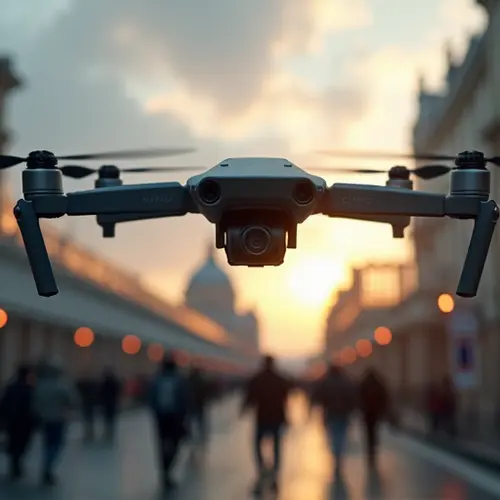The Battle Over Autonomous Weapons Heats Up
The United Nations General Assembly has launched intense debates about establishing a global ban on lethal autonomous weapons systems (LAWS), commonly called "killer robots." Delegates from over 90 countries are pushing for strict limitations on AI-powered military tools that can select and engage targets without meaningful human control. This comes as informal UN consultations are scheduled for May 12-13, 2025 in New York to address growing ethical and security concerns.
What Are Autonomous Weapons?
According to SIPRI research, autonomous weapons are systems that "once activated, can independently search for and engage targets based on programmed constraints." Current examples include drone swarms, autonomous attack submarines, and AI-powered missile defense systems like Israel's Iron Dome. Unlike remotely operated drones, these weapons make kill decisions without real-time human oversight.
The Great Divide
The debate reveals deep international rifts. Over 30 nations including Austria, Brazil and New Zealand demand a preemptive ban, arguing AI-powered weapons cross moral boundaries. "Machines should not decide life and death," stated Argentina's delegate during preliminary talks.
Meanwhile, military powers like the US, Russia and China resist binding restrictions. Pentagon officials contend existing international humanitarian law sufficiently regulates emerging technologies. A recent US policy paper claims autonomous systems could "reduce civilian casualties through precision targeting."
Ethical Minefield
Human rights organizations highlight alarming incidents, including reports of Israel using AI systems like "Lavender" to identify targets in Gaza with minimal human verification. Concerns include:
- Accountability gaps when autonomous systems cause unlawful deaths
- Potential for algorithmic bias and indiscriminate targeting
- Risk of rapid escalation in conflict zones
Three-Track Diplomacy
Discussions are unfolding through parallel channels:
- UN Convention on Certain Conventional Weapons (CCW) where consensus requirements have stalled progress since 2014
- REAIM summits initiated by the Netherlands and South Korea focusing on responsible military AI
- UN General Assembly consultations beginning May 2025 that could circumvent CCW deadlocks
As Dr. Vincent Boulanin of SIPRI notes: "The fundamental question remains - should we allow machines to make kill decisions? The answer will define 21st century warfare."

 Nederlands
Nederlands
 English
English
 Deutsch
Deutsch
 Français
Français
 Español
Español
 Português
Português










